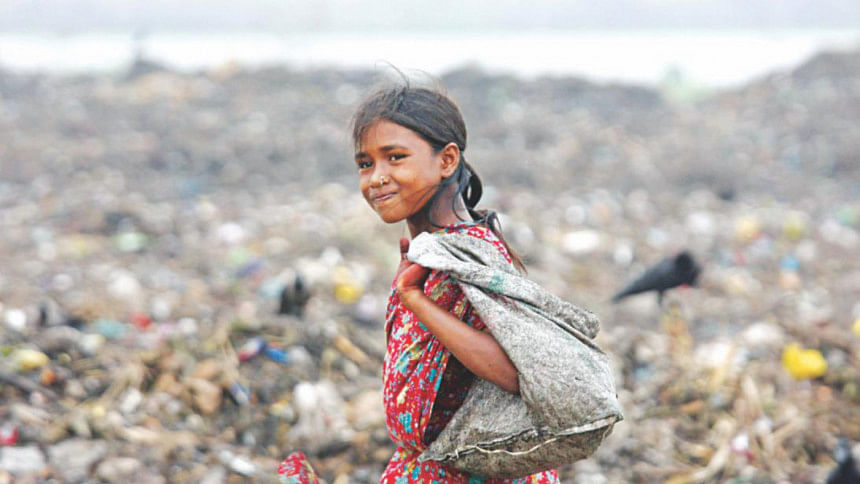Dhaka’s poverty falls by 4.3 percentage points in 2019-2022

The overall poverty headcount decreased by 4.3 percentage points in Dhaka city between 2019 and 2022, according to a survey of the Bangladesh Institute of Development Studies (BIDS).
It came down to 22.24 per cent from 26.54 per cent, the survey data showed.
The think-tank also found that the proportion of extremely poor households declined by 3.2 percentage points from 17.01 per cent to 13.83 per cent during the period.
The BIDS disclosed the findings of the survey at the BIDS Research Almanac 2023 at the Lakeshore Hotel in Dhaka today.
"This is considerable progress in poverty reduction under the duress of Covid-19," BIDS Director-General Binayak Sen said while presenting a paper on "Urban Poverty Dynamics during Covid-19 Anatomy of Resilience".
The reduction of poverty happened due to self-employment, income transfer both from the private and public sectors, and financial dissaving, he said.
"However, the number of new poor rose, and the government should work on it."
He said digital technology like mobile financial services played a positive role in creating self-employment.
The BIDS findings were based on panel data on 2,046 households in the urban area.
Addressing the event, Prof Shamsul Alam, state minister for planning, said some economists had a misperception that poverty doubled during the pandemic, but the BIDS's survey findings had disproved it.

 For all latest news, follow The Daily Star's Google News channel.
For all latest news, follow The Daily Star's Google News channel. 






Comments